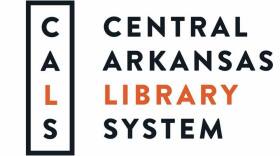A public service campaign is underway encouraging people in central Arkansas to seek medical care that they have delayed because of the COVID-19 pandemic. Take Care Arkansas is being funded by two matching $25,000 grants from the Fifty for the Future community service organization and Arkansas Blue Cross and Blue Shield.
This is the first time the region’s six major hospitals have united under a single message. Those are Arkansas Children’s Hospital, Arkansas Heart Hospital, Arkansas Surgical Hospital, Baptist Health, CHI St. Vincent, and the University of Arkansas for Medical Sciences.
Public service announcements will run the next four weeks through July 19 on four central Arkansas TV stations and on social media, mostly Facebook, said Millie Ward, president of Stone Ward. Her marketing firm donated its work in producing the effort’s creative assets and also is handling public relations for free.
Four central Arkansas TV stations — KATV Channel 7, KARK Channel 4, KLRT Channel 16, and KTHV Channel 11 — are providing donations of airtime on a 60% donation, 40% paid basis. Comcast Cable is running PSAs for free, and Lamar Outdoor is providing billboard advertising at no cost. A Take Care Arkansas Facebook page will host 30 minute weekly “Lunch and Learns” July 1, 8 and 15 at noon.
Blue Cross CEO Curtis Barnett said after the press conference, “We have seen, and we’ve been tracking it for weeks now, people who have not been getting care” because of fears of exposure to the virus. He added that the insurer has identified its highest-risk members and is encouraging them to seek care.
CEOs of the six hospitals along with Gov. Asa Hutchinson also spoke at the press conference. Baptist Health President and CEO Troy Wells said all of its system hospitals statewide are performing temperature checks and completing questionnaires with visitors, requiring masks inside facilities, cleaning all surfaces between patient encounters, and isolating COVID-19 patients and suspected patients in rooms with negative air flow. Chemical vapor processes clean hard-to-reach areas, and instruments can verify that surfaces have been disinfected.
“Hospitals have been dealing with highly infectious disease long before COVID-19, and we know how to keep you safe,” he said. “Our hospitals have never been safer than they are today.”
Arkansas Children’s Hospital CEO Marcy Doderer said vaccination rates have been reduced in Arkansas during the pandemic, and patients have a higher level of acuity. She said Arkansas Children’s has instituted pre-surgery testing that can be done while the child is still in the car, has created a drive-through vaccination clinic, and has increased telemedicine offerings.
Arkansas Heart Hospital CEO Dr. Bruce Murphy said the pandemic has “united the health care leadership in this city and in central Arkansas.” Also speaking were Arkansas Surgical Hospital CEO Brian Fowler, UAMS Chancellor Dr. Cam Patterson, and CHI St. Vincent CEO Chad Aduddell.
Dr. Dean Kumpuris recounted the history of the partnership. Kumpuris, a gastroenterologist and member of the Little Rock City Board of Directors, said Mayor Frank Scott asked the six hospitals to meet and prepare for the pandemic along with other health leaders. In the first meeting, two public hospitals, two physician-owned hospitals, and two nonprofit charitable hospitals were represented. Within two days after that first meeting, the hospitals agreed to stop doing elective procedures, he said. In a later meeting at City Hall, the hospitals agreed to share proprietary information including their intensive care unit capacity, nursing staff and other issues.
“At the end of that time, we felt like we had a greater understanding of the collective ability of central Arkansas to take care of the problem that we were being confronted with,” he said. “Over the next couple of weeks, we refined our policy and plan, we acknowledged each other’s successes, we learned from each other’s mistakes, and most importantly we commiserated with each other about the things that we couldn’t solve.”
He said the medical community learned how to respond to the pandemic, with not a single medical staff member dying among the six hospitals represented, and it learned that it can also provide other types of care at the same time it addresses COVID-19. But it did too good a job of educating Arkansans about the dangers of COVID-19 and the need to stay home, to the point that people did not seek necessary care, even for a heart attack, or do wellness visits or get vaccinations.
“We must make people understand that their health care situation is not an either-or situation,” Kumpuris said.






